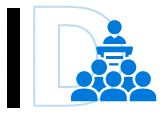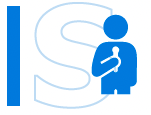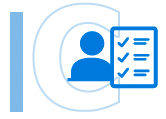
People have different personalities. Some are more introverted while others are extroverted, and some people get along really well while others just don’t. This is especially important to note in a work setting. Why? Because understanding someone’s personality can help you understand their behaviours and communication style – which can play a big role in their performance at work.
That’s why it’s common for employers to include personality tests in hiring. Recruiters can use it to identify relevant and useful personality traits, including communication skills, social skills, and stress management abilities.
But it doesn’t stop there. Employers also use personality tests to understand their current employees so they can gain a deeper understanding of each team member’s performance and provide whatever support they need.
One of the most common personality tests is the DISC test. The DISC Model of Behavior was first proposed in 1928 by physiological psychologist William Moulton Marston. And unlike the 16 Personality Types Test, there are only 4 main behavioural styles in the DISC model.
Here are the 4 styles and how you can support people depending on their personality type:

Dominance
People with D styles are motivated by success, winning, and competition. They’re often described as direct and demanding, strong-willed, driven, and determined.
And because they are strong-willed, they also need a manager who is as tough as they are. When they are given tasks, they need to be provided with clearly outlined tasks and responsibilities and given the independence to complete them.

Influence
Individuals in this group are motivated by social recognition, group activities, and relationships. They are often described as warm, trusting, collaborative, optimistic, and enthusiastic.
People with this personality type tend to respond to managers or direct supervisors who are encouraging and inspiring.
 Steadiness
Steadiness
People with S styles value cooperation, opportunities to help, trust, and sincere appreciation. Their characteristics include calmness, patience, deliberateness, and consistency.
Leaders who lead individuals with S-style personalities must earn and maintain their trust. They should also remember that type S personalities are people, not just tools for completing tasks. So, if they’re working, they should be able to finish it at their own pace without being rushed.
 Compliance
Compliance
When it comes to working, C styles are dedicated to producing quality work. They are careful, analytical, systematic, diplomatic, accurate, and tactful. Often preferring to work alone, they are powerhouses when it comes to planning and organisation.
Compliance is a behaviour that’s valued in roles such as accounting, IT, engineering and estimating. These employees are integral to the operation of smooth processes and quality documentation, and managers of type C personalities need to ensure they have enough support when they need it.
How Aston Advantage Uses the DISC Behavioural Profiling Test
At Aston Advantage, we help businesses understand their employees by creating personalised profiles using the DISC framework. With each profile, they can gain a deeper understanding of individuals, teams, and leadership teams.
And if you need assistance, we have programs to help you understand more about DISC Behavioural Profiling so you better understand your employees and support them in every way possible.
Connect with us today to learn more about how DISC behavioural profiling can benefit your team.



